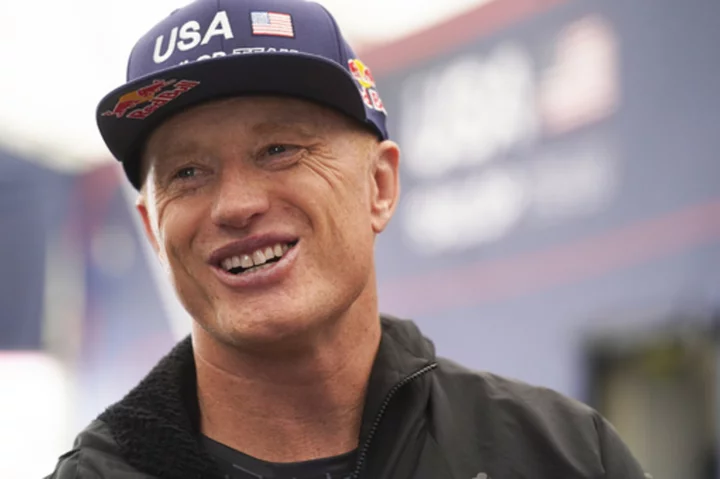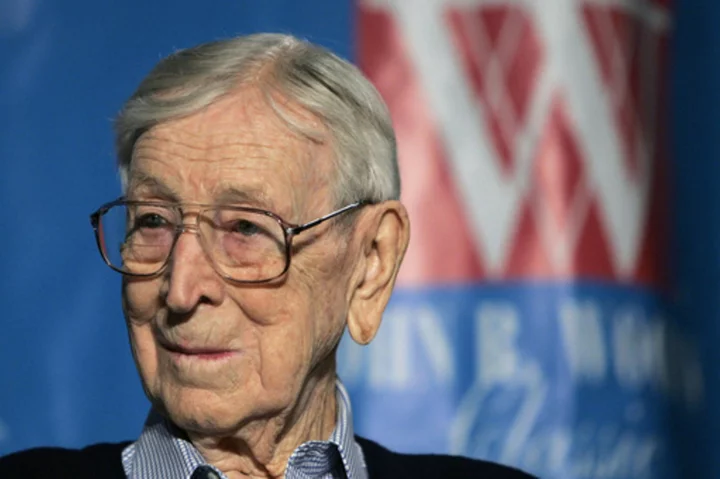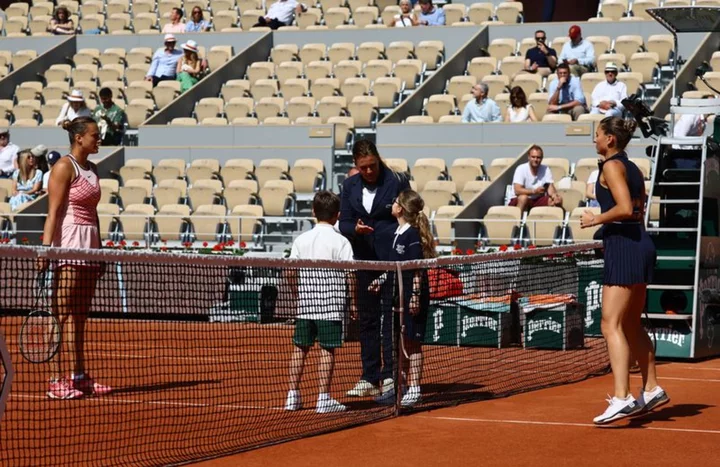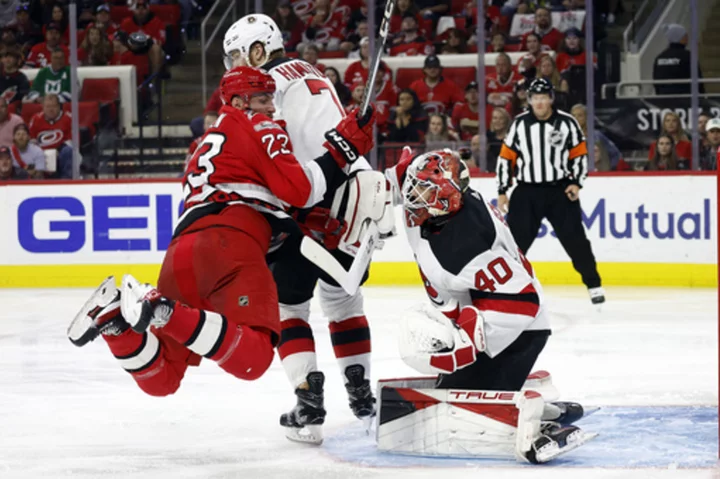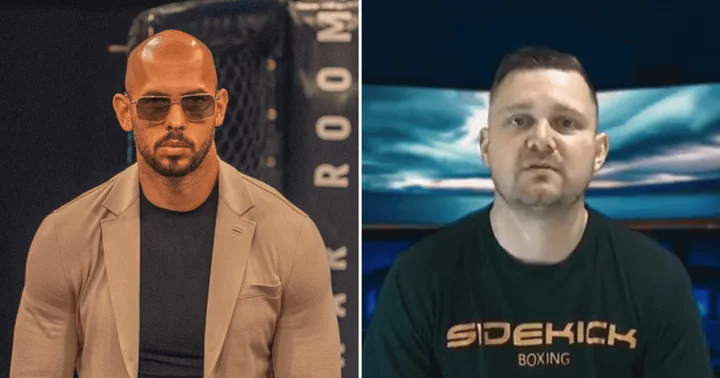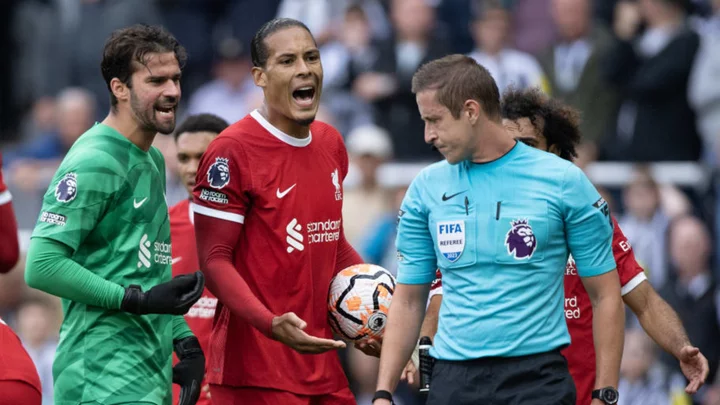Team USA skipper Jimmy Spithill could use some good sailing mojo on home waters.
The Americans struggled in Chicago in the opening regatta of SailGP’s fourth season and are looking to rebound when tech baron Larry Ellison’s global league makes its Southern California debut in the Oracle Los Angeles Sail Grand Prix this weekend.
The U.S. crew has regressed since Season 2, when Spithill took over a struggling squad and led it into the $1 million, winner-take-all championship race that was won by Team Australia. They finished eighth out of nine teams last season and then were ninth out of 10 teams on Lake Michigan a month ago, finishing ahead of only newcomer Germany.
Four of 12 regattas this season will be in U.S. cities and a good showing in the steady breezes on the Port of Los Angeles’ Outer Harbor would be huge for the Americans aboard their 50-foot foiling catamaran, which has an image of the Statue of Liberty on the wingsail.
“I think it’s really important. It’s not funny, but it’s kind of ironic that we’ve struggled to get a decent result on the tour at U.S. events,” Spithill, a two-time America’s Cup champion, said Friday. “Events we’ve won or been in the grand final, have all been outside of the U.S. We’ve seen there’s a huge following here, a huge fan base, the numbers don’t lie. Clearly that’s why SailGP has more U.S. events.”
This is as close of a home regatta as there is for Spithill, an Australian who lives full-time in San Diego with his American wife and two sons.
“Every event you go into you want to win and you want to be up in that final race on Sunday, but there’s definitely added motivation coming into a home event to perform well for that very reason,” Spithill said.
Spithill said the American crew is struggling to be consistent mostly because training hours are limited because the catamarans spend a lot of time in containers being shipped from regatta to regatta around the globe.
Tom Slingsby, an Olympic gold medalist who has skippered Team Australia to three straight $1 million championships, called his former crewmate and friend Spithill “probably one of the the best team members if not the best team members I’ve sailed with. He’s a true leader.”
Asked to assess what’s going on with the U.S. team, Slingsby said: “Look, everyone goes through highs and lows, teams go through highs and lows. I’m not sure what’s going to happen over there but changes probably need to happen. It’ll be interesting to see what goes on. But I’ll never doubt Jimmy’s talent and skill and he’s taught me so much in my sailing career.”
Spithill was skipper and Slingsby the strategist with Oracle Team USA in the 2013 America’s Cup when the team benched tactician John Kostecki and promoted Ben Ainslie after losing four of the first five races against Emirates Team New Zealand. After the Kiwis reached match point at 8-1, the Americans reeled off eight straight wins in one of the greatest comebacks in sports to defend the Auld Mug.
But making a change like that in SailGP isn’t so easy.
“It’s a tough one in that to make a change means you’re putting someone new in, in any of the roles,” Spithill said. “You can do that but it to expect immediate results or immediate improvement is going to be difficult because you get back to the hours game. You can’t just go out and train.”
The Australian crew has sailed together for years. The British, led by Ainslie, and New Zealand, skippered by two-time defending America’s Cup champion Peter Burling, have sailed together through multiple America’s Cup campaigns, giving them consistency together. The U.S. team heads in different directions between regattas, with Spithill continuing to sail with America’s Cup syndicate Luna Rossa Prada Pirelli Team and three other crewmembers campaigning for the 2024 Olympics.
Spithill said the U.S. team might have to make tough internal decisions while continuing to develop a pipeline of American talent through its Foiling First initiative.
“It’s tough to shortcut hours,” Spithill said. “There’s no shortcut at the top end when others have got more than you. But we know that and we need to come up with a different strategy to combat that. That’s OK. It’s something we’ve got to deal with.”
___
Follow Bernie Wilson at https://twitter.com/berniewilson

